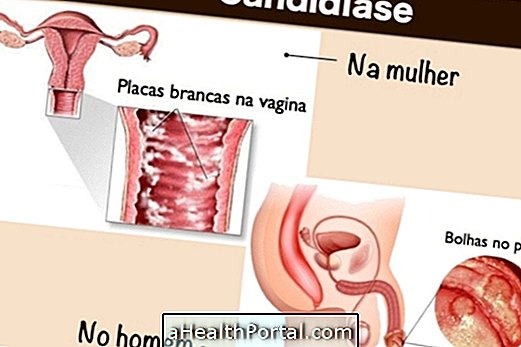Vomiting is common early in pregnancy, however, when the mother vomits several times throughout the day for weeks, this can be a condition called hyperemesis gravidarum.
In these cases there is persistence of excessive nausea and vomiting even after the third month of pregnancy, which can cause malaise and end up compromising the woman's nutritional status, generating symptoms such as dry mouth, increased heart rate and weight loss above 5% of the initial body weight.
In milder cases, treatment can be done at home with changes in diet and use of antacids, for example, even in the most severe cases, it may be necessary to stay in the hospital to restore the fluid imbalance in the body and make medicines directly in vein.

How to know if it is hyperemesis gravidarum
In most cases, women who suffer from hyperemesis gravidarum can not alleviate the urge to vomit using the most common natural remedies, such as lemon popsicle or ginger tea. In addition, other signs and symptoms may appear, such as:
- Difficulty eating or drinking without vomiting;
- Loss of more than 5% of body weight;
- Dry mouth and decreased urine;
- Excessive tiredness;
- Tongue covered by a white layer;
- Acid breath, similar to alcohol;
- Increased heart rate and decreased blood pressure.
However, even if there are no signs and symptoms, but nausea and vomiting are making it difficult to perform daily activities, it is very important to consult the obstetrician to assess the situation and to identify if it is a case of hyperemesis gravidarum, if appropriate treatment.
Does excessive vomiting hurt the baby?
In general, there are no consequences of too much vomiting for the baby, but while rare, some conditions such as low birth weight, premature birth, or low IQ may occur. But these complications only occur in cases where hyperemesis is very severe or in the absence of adequate treatment.

How to control hyperemesis gravidarum
In milder cases where there is no marked weight loss, nor risk to the health of the mother or baby, the treatment can be done with rest and good hydration. A nutritionist can advise a nutritional treatment, making correction of acid-base and electrolyte disorders in the body.
Some home strategies that can help fight morning sickness and vomiting are:
- Eat a cracker of salt and water soon after waking up before getting out of bed;
- Take small sips of cold water several times a day, especially when you feel nauseous;
- Suck lemon or orange popsicles after meals;
- Avoid strong odors like perfumes and the preparation of meals.
However, in the most severe cases, it is possible that the pregnant woman does not feel any improvement after adopting these strategies and it is necessary to consult the obstetrician to start using a medication for nausea such as Prochlorperazine or Metoclopramide. If the woman still suffers from pregnancy hyperemia and is losing a lot of weight, the doctor can advise her to stay in the hospital until the symptoms improve.
What Causes Excessive Vomiting
The main causes of excessive vomiting are hormonal changes and the emotional factor, however, this condition can also be caused by cytokines that penetrate the maternal circulation, vitamin B6 deficiency, allergic or gastrointestinal reaction and, therefore, one should seek medical help.






















